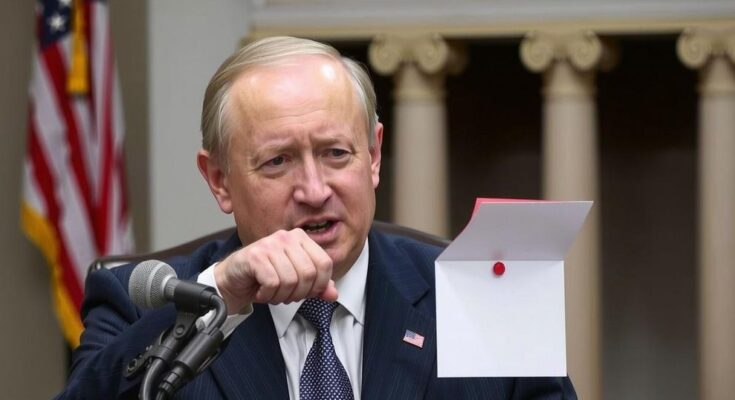U.S. officials condemned alleged Russian interference in Romania’s canceled run-off presidential election, emphasizing the need for electoral integrity. The Department of State supported the Romanian people and criticized foreign influence, asserting that only they should determine their leaders. This follows accusations of a Russian propaganda campaign that boosted candidate Calin Georgescu’s profile before his narrow primary win.
On December 7, 2023, U.S. officials condemned alleged attempts by Russia to interfere in Romania’s electoral process following the Romanian Constitutional Court’s cancellation of a scheduled run-off presidential election. The U.S. Department of State emphasized the importance of free and fair elections, expressing support for the Romanian populace amidst concerns over foreign influence that could undermine democratic principles. State Department spokesperson Matthew Miller underscored that Romanian citizens need to trust that their electoral outcomes reflect their true democratic will, devoid of external malign manipulation.
The canceled run-off was supposed to take place between candidates Calin Georgescu, a far-right nationalist, and Elena Lasconi, a centrist. The Romanian court cited a purported Russian propaganda campaign that allegedly boosted Georgescu’s profile, resulting in his narrow victory in the first electoral round and subsequent pairing against Lasconi in the runoff. This situation prompted the court to demand the reinitiation of the electoral process to maintain the integrity of its elections as dictated by Article 146(f) of the Romanian Constitution, which requires the electoral proceedings to be legal and correct.
U.S. officials reiterated that only the Romanian populace holds the authority to elect their leaders, asserting that no foreign government has the right to influence this decision. Intelligence assessments from Romania indicated an organized effort by Russian state actors to enhance Georgescu’s candidacy through social media manipulation, which included the establishment of approximately 25,000 TikTok accounts just weeks prior to his initial vote. The situation raises concerns about potential violations of Romanian laws regarding campaign financing as well.
The State Department called for adherence to Romania’s constitutional order and a commitment to a democratic process that is free from external threats, violence, or intimidation. Miller firmly stated, “It is the choice of the Romanian people whom they elect. No other country or foreign actor has that right.” Such assertions highlight the necessity for a peaceful democratic environment to ensure the legitimacy of Romania’s electoral framework.
The issue of foreign interference in elections has garnered significant attention globally, particularly due to recent events in various nations influenced by foreign state actors. In Romania, allegations of Russian interference surfaced during the lead-up to a presidential election, prompting substantial reactions. The Romanian Constitutional Court’s intervention reflects the seriousness of these allegations, indicating potential manipulation during the electoral process, which poses risks to democratic governance and the integrity of elections. This situation not only threatens Romania’s democracy but also raises broader concerns about the implications of foreign interference in sovereign nations’ electoral processes.
The recent developments in Romania underscore the critical importance of safeguarding the integrity of democratic elections against foreign interference. The U.S. government’s strong stance serves as a call for vigilance and adherence to constitutional principles ensuring that election outcomes authentically represent the democratic will of the citizens. As the situation unfolds, it remains crucial for all stakeholders to foster a transparent electoral process devoid of external manipulation, ensuring the legitimacy of Romania’s future political landscape.
Original Source: www.upi.com




